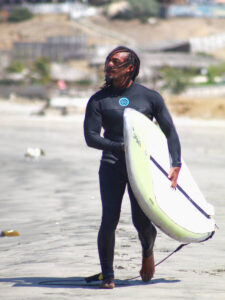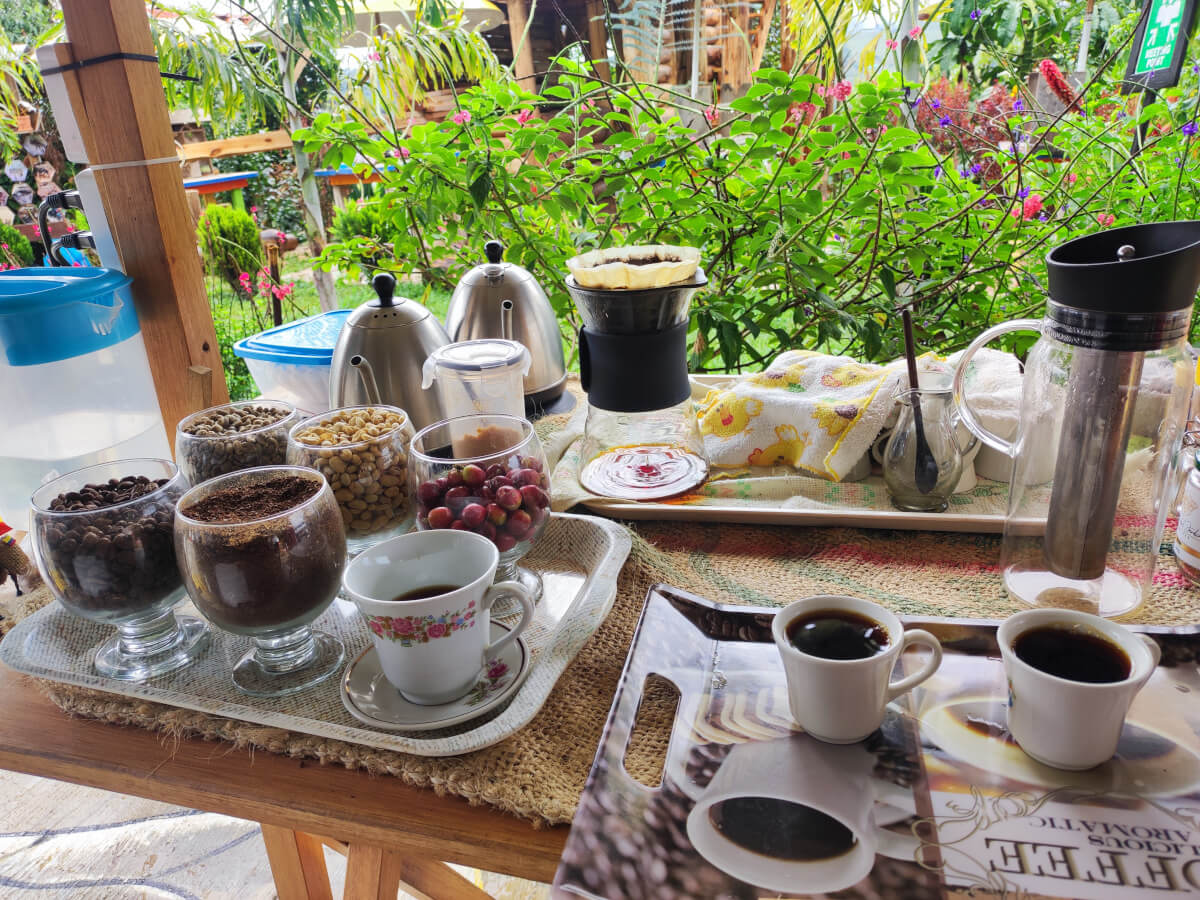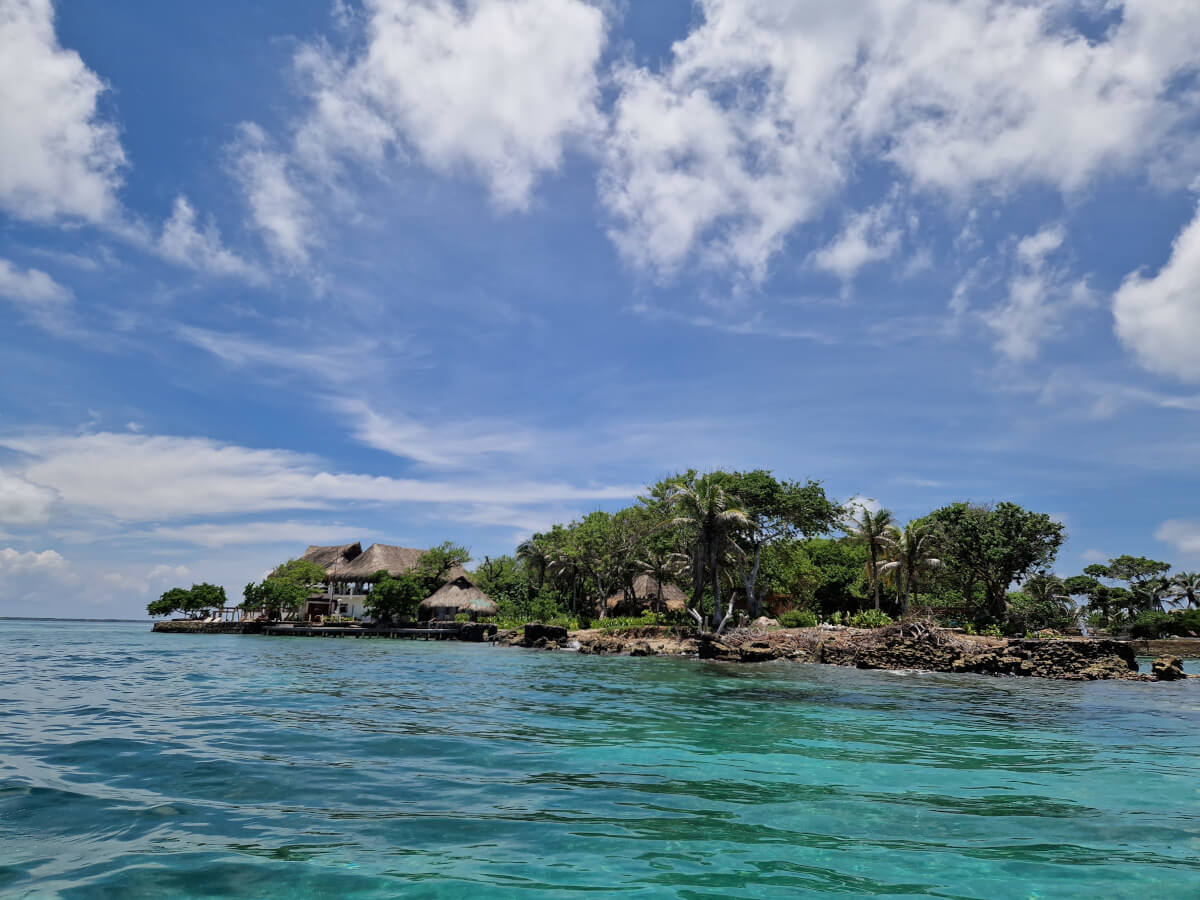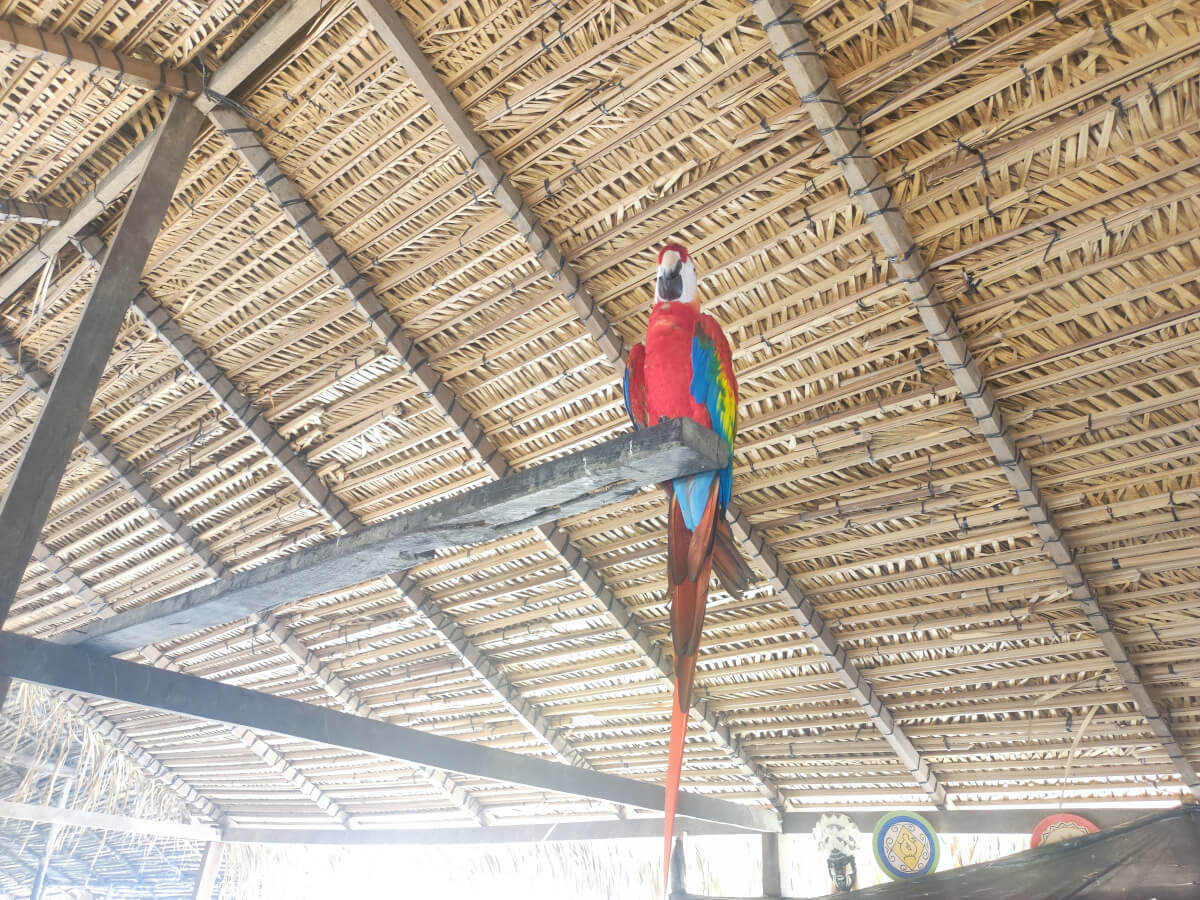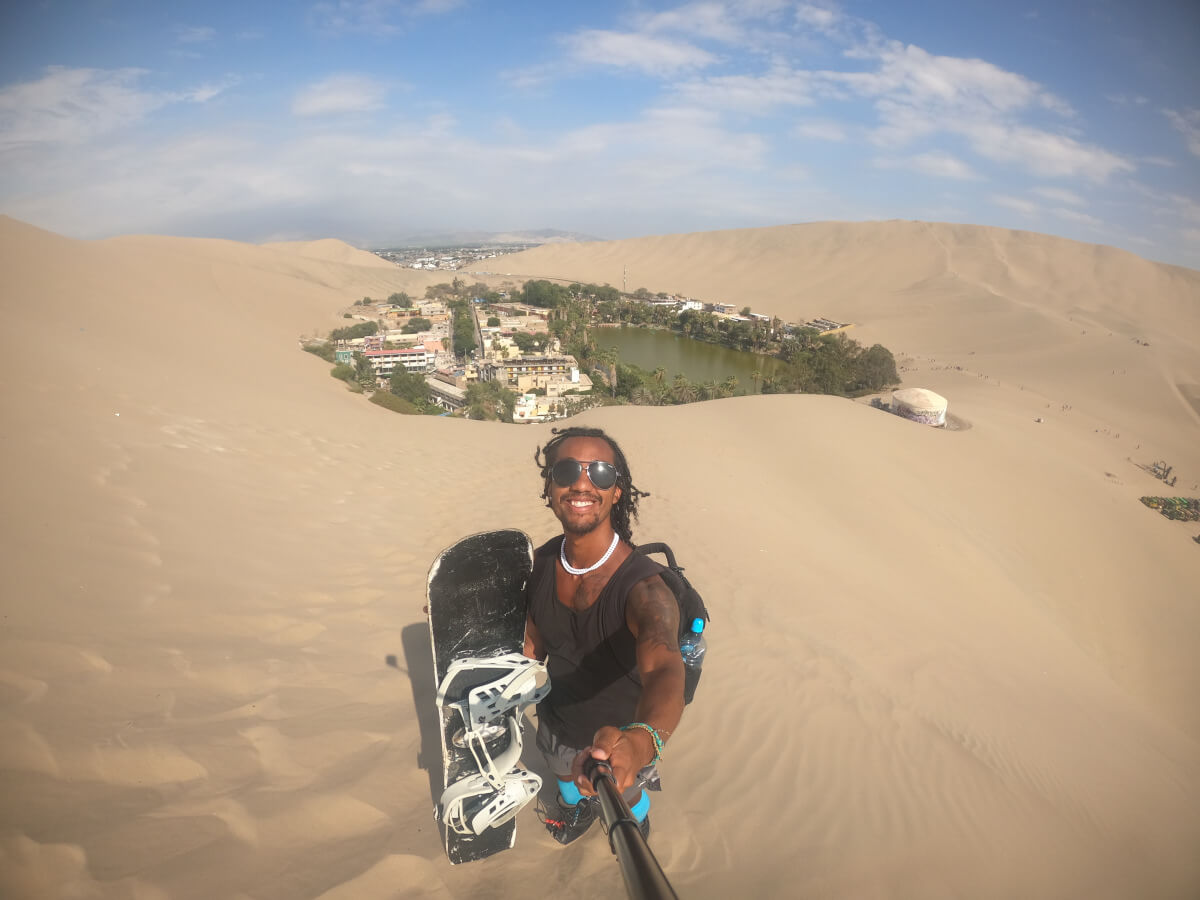Belmira was born in 1994 in Luanda, Angola. After finishing high school in her country, she started her studies in Business Organization, but deep inside, her wish was to start a career in the health field. Medicine was her goal at that time, so she started wondering where she could go to get an opportunity to study it.
After talking to her aunt, who was living in Belgrade, Belmira received an offer to continue her studies in Serbia. Her aunt would help her finance most of the costs, and in exchange, she would stay with them, helping with some tasks at home.
This opportunity showed up at the right time for Belmira, so she packed her stuff and left Angola in 2011, landing in Eastern European lands for the first time in her life.
If you are interested in learning more about her story, keep reading.
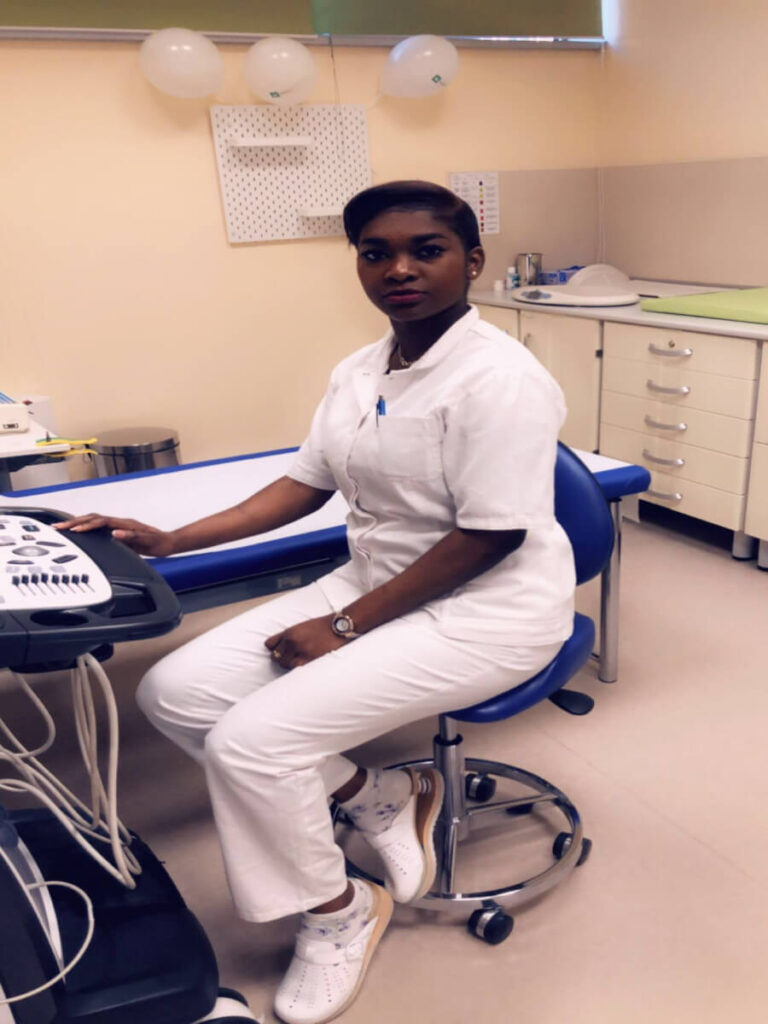
Table of Contents
Belmira's journey
In this section, you will read Belmira’s history in Serbia since she left Angola in 2011, going through the most important events of her life until 2024. The only language she knew back then was Portuguese; when she flew from Luanda to Germany, she did not understand English well. Now, Belmira completely dominates both the English and Serbian languages.
New beginnings
Before arriving in Serbia, Belmira had no knowledge of the language and the Serbian culture. She was determined to learn everything on the fly when she landed in the country.
Her first five months were dedicated to learning the Serbian language. She enrolled in group classes at the language institute in Belgrade, where she met more foreigners sharing the same mission of dominating the language.
She made friends with a couple of locals who were always helping her improve her Serbian. In no time, she was skilled enough to understand the language and enroll in classes for her nursery studies.
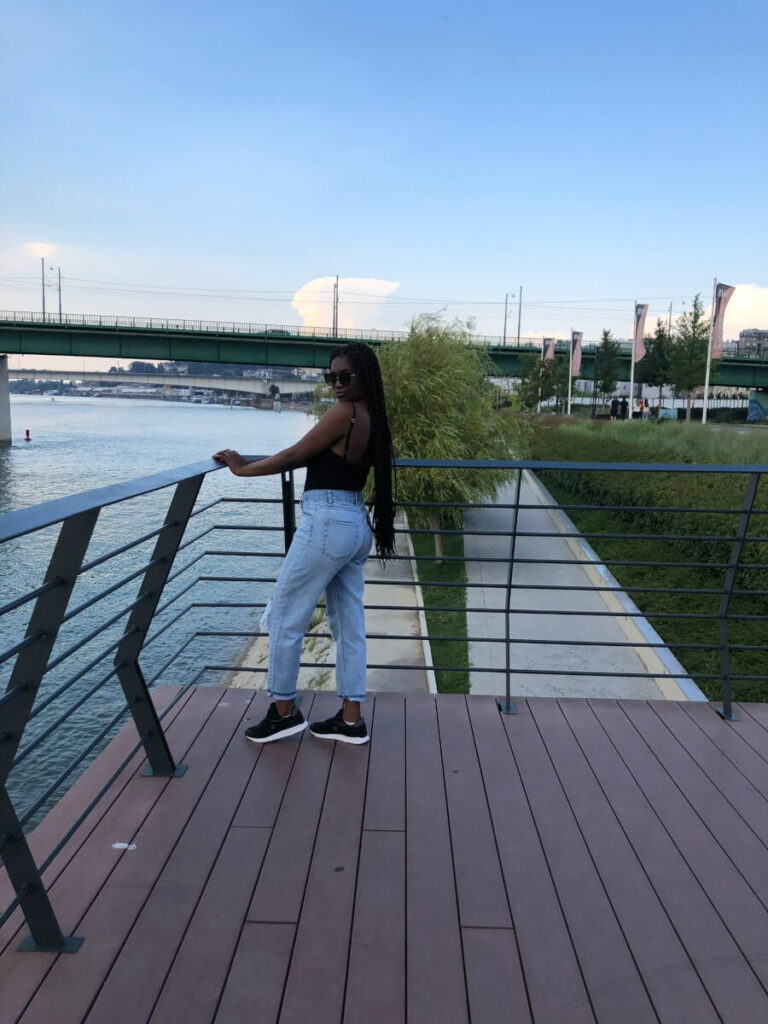
Change of plans
Yes, you read that right! Nursery studies in Serbia. Her plans changed after arriving in Belgrade. Concerns about her age and the time necessary to study medicine made Belmira change her plans and study nursery instead.
During our conversation, I asked her if she was happy with her plans changing. She said it was a better decision in the end and that she felt satisfied with the completion of her education in nursery.
Serbia wasn't done with her yet
After five years living in Serbia, she concluded her studies in nursery and learned a new language. Very satisfied with the results, Belmira felt it was time to return to Angola and find a job using all the skills she learned in Serbia.
Only if she knew that Serbia wasn’t done with her yet!! Her aunt had to leave the country in 2014 due to the end of the diplomatic mission. Belmira felt that it was better for her to stay in Belgrade a bit longer.
She was enjoying her new life in Serbia despite the difficulties of having to start living by herself, and the return to Angola at that time was only a small wish from her side.
Belmira worked braiding hair and babysitting for people and stayed in friends’ houses for some time to sort things out.
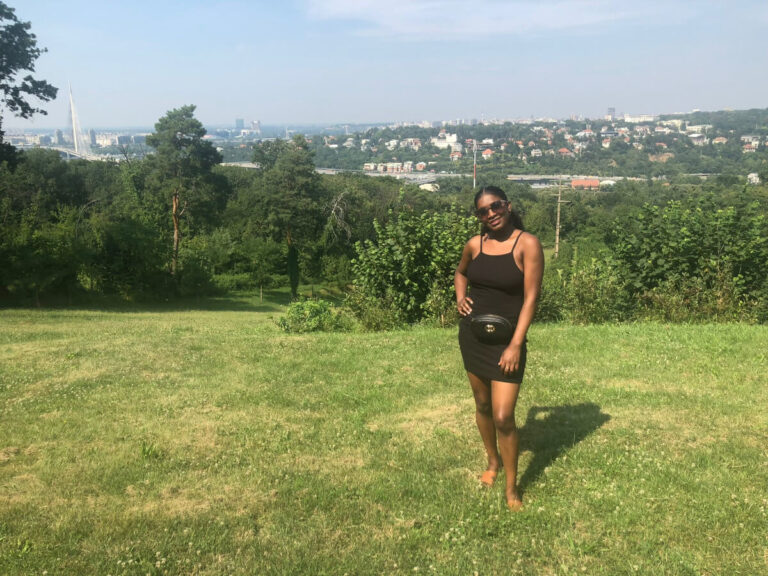
A longer stay
After getting a job in a hospital in Belgrade, Belmira had everything she needed to finance herself independently. Getting experience in the field was her priority back then, so she decided to stay and work.
Covid came in 2019, disrupting plans and changing many lives. Belmira is included in the list of people affected by the pandemic. She had issues related to her visa after finishing her studies. Without the student visa, she wasn’t allowed to work in the country, a new type of visa was required.
After several attempts to solve her papers, Belmira accepted an offer to work in the Angolan embassy in Belgrade. She still works there with plans to change soon and return to a hospital to work as a nurse.
Until this day comes, she will continue living in Belgrade and enjoying the Serbian lifestyle as much as possible. Belmira told me she is not in a hurry to make a big change in her life, so staying in Serbia longer is good for her.
Questions
In this section, you will read answers to questions I asked Belmira to better understand her experience in Serbia. Each heading corresponds to one question, followed by her answers.
Q: What did you know about Serbia before moving?
Belmira: Nothing. Literally nothing about their language and their culture. When I was in Angola, I didn’t have regular access to the internet, so it was difficult to research more information about the country. My best source of information was my cousins.
They would visit Angola often, and every time I met them, they would tell me how life was in Serbia and in Europe in general. My cousins also lived in Romania, so they had a lot of experiences to share with me.
I was very determined to leave Angola and try something new after talking to them during their visits before 2011. I had a feeling that opportunity would be good for me.
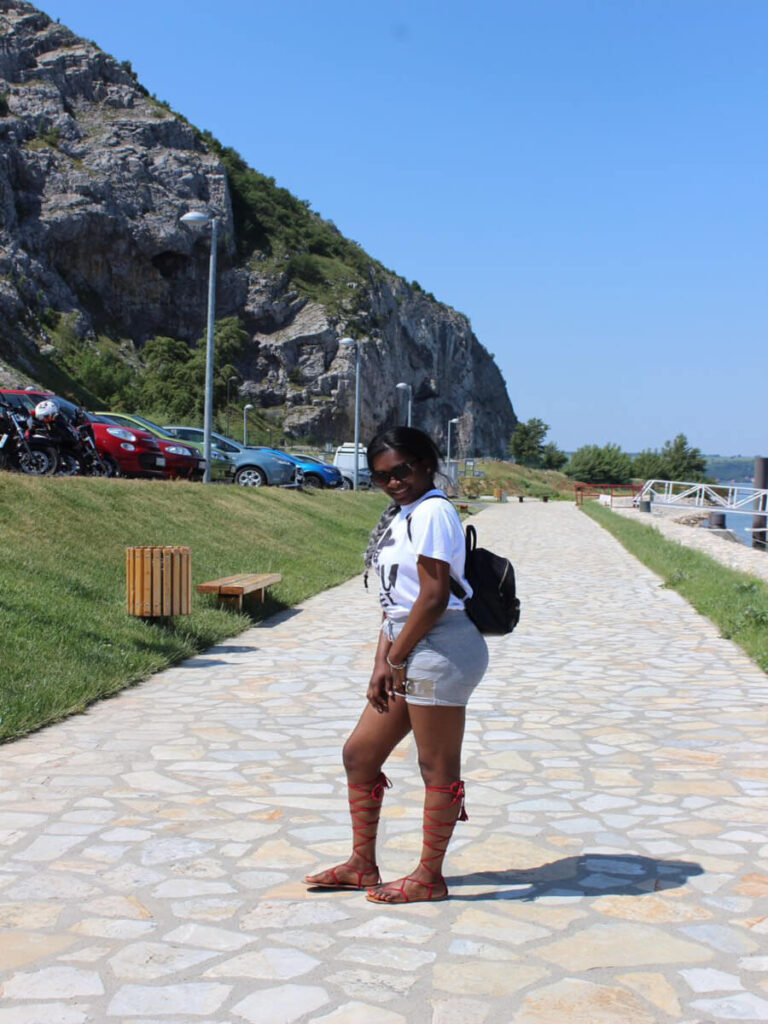
Q: How was the preparation to move?
Belmira: It was quite simple, to be honest. I accepted my aunt’s offer in 2010, one year before moving to Belgrade. After that, I got my passport in Luanda and packed some winter clothes. My aunt bought my plane ticket and suggested I pack some jackets, knowing they might not serve well in Serbia because of the difference in the weather.
I arrived in Belgrade in October of 2011, and it was a bit cold then, but my aunt picked me up at the airport and bought an extra jacket with her.
My best friends knew about my decision to move, and I told my mom about it only one month before the flight. I was afraid she would tell many people about my plans, and if she did, I wouldn’t like that.
Q: Did you have any concerns about the country?
Belmira: Since I heard many stories from my cousins, I could prepare myself for some things. I was concerned about not finding hair and beauty products that I use and that are easy to find in Angola.
I brought many products in my luggage when I flew to Belgrade. Later on, I met many people who had a friend or a relative flying from Angola to Serbia, so I would ask them to bring some products for me.
I wasn’t concerned about the language because my determination to leave Angola was immense, so I was ready for any challenge.
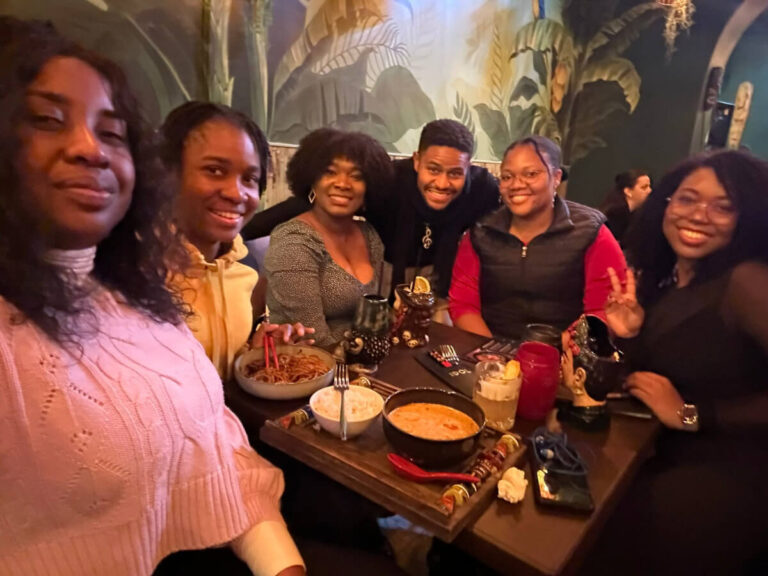
Q: Tell me about the biggest cultural shocks you faced in Serbia.
Belmira: Food was by far the biggest cultural shock I felt. I would go to the pijaca (fair market) and look for fruits that I was used to eating in Angola, like plantain. I would ask the local producers, and they all told me, ‘Sorry, we don’t have it here.’ It took some time to understand that I couldn’t eat the same things I ate in Angola while living here.
My second cultural shock was to get closer to people. I remember when we were visiting places in Serbia with a group from the language institute; people would stare at me often. They were looking at me admiring, though; it wasn’t the look you get when someone is not welcoming or inviting; many would simply smile at me but never get too close.
When using public transportation, rarely someone would sit close to me. I wasn’t bothered, though; in the end, I had more space for myself during the ride.
I feel that people in Serbia are colder than in Angola; I also find them calmer. In Angola, there’s constant noise from music and people hanging out.
Winters required adjustment as well. I wouldn’t say I liked the fact that I had to wear many layers to keep myself warm, but I got used to it!
Q: How was the adaption process in Serbia?
Belmira: My adaptation to the Serbian lifestyle was easy, to be honest. I believe there are no barriers for a person when the will for a change exists. That was my case when I moved to Serbia. I was highly motivated to start a new life, so there were no barriers in my mind.
In my household, we ate Angolan food quite often because I had friends bringing ingredients from Angola, which made me happy. I bought other things I needed for my life in Belgrade, so I was well prepared.
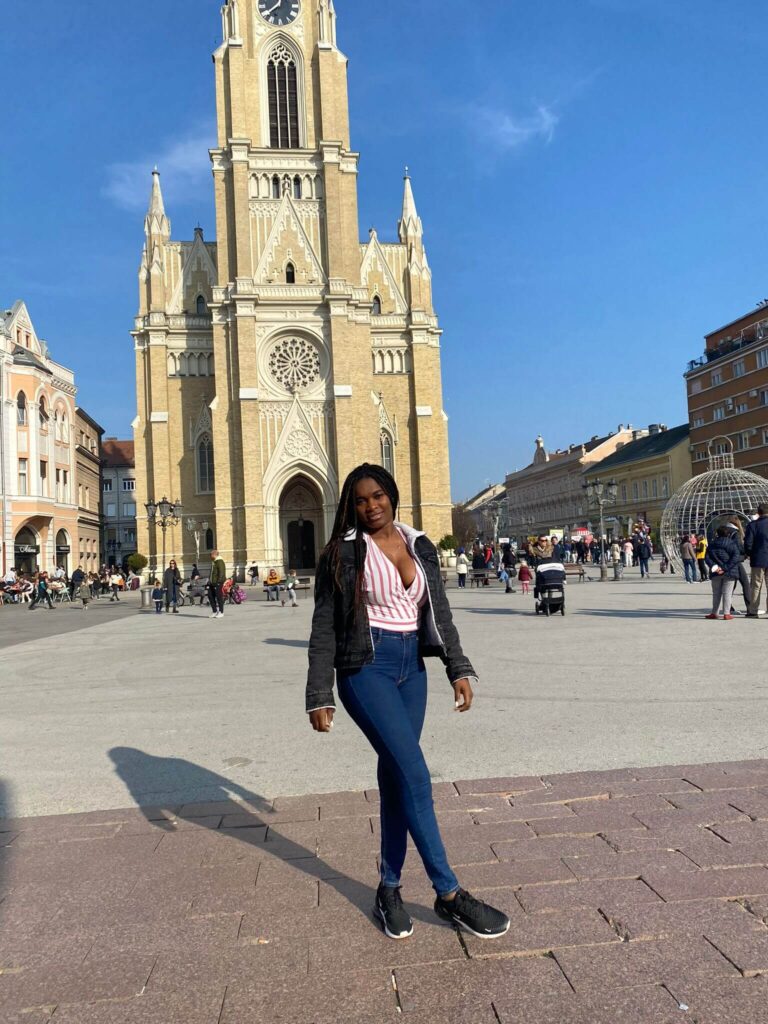
Q: Do you consider Serbia a safe country?
Belmira: I would say yes, 100%, if you asked me this question last year. Since then, I heard more stories of cases of violence in Belgrade. There was a shooting in one school last year that shocked the country. Unfortunately, people are talking more often about violence than years ago when I moved to Serbia.
Some African friends told me they had situations where the bus driver closed the door for them, not allowing them to get inside the bus. I also hear people talking often about the increase in pickpocketing in the city center.
Still, I recommend that people come and visit because Serbia is far safer than Angola.
Q: Do you face racism in Serbia?
Belmira: I heard stories from others but don’t feel it here. Also, it is because I am the type of person who is very hard to put down. Only once, a guy called me some names, saying that I should return to my country. At first, I thought he was talking to himself, but then I took off my headphones, and he repeated what he said; he was with another guy, both looked my age.
They started following me, so I stopped and responded to them in Serbian. After asking them if they have a problem with foreigners in their country, I told them it’s embarrassing that a girl needs to hear things like that from men. They changed their attitude towards me after recognizing that I knew the language.
Many people were around us, watching the entire situation, but nobody did anything. That makes me wonder if someone would help if the boys were more aggressive.
During all my years here, this was the only racist situation I faced, so I look back as a very isolated case because my experience here is excellent.
Q: How do you define your overall experience in Serbia?
Belmira: I would define my experience as wonderful!! A legit 10/10!! I entered this country as a girl, and I became a woman. The whole journey so far was worth it.

Q: Would you like to return to Angola?
Belmira: No. I had many job offers to return to Angola in the last few years, but I said no to all of them. The life I had back there is not for me at this moment. If I were to leave Serbia, I would rather move to another country than return to Angola, depending on the opportunity, of course, my life here is really good.
Q: How is to travel in Serbia?
Belmira: I love to travel and explore the country. My favorite city in Serbia is Novi Sad. It’s close to Belgrade and not that small compared with other cities. People in Novi Sad are very open and welcoming, in my opinion.
Q: What you say for people of color thinking about visiting Serbia?
Belmira: I would tell them all to come and visit Serbia. There are a lot of historical sites and cities where they can learn about the interesting Serbian history and culture. It’s a calm country where they can fully explore as they want.
In Angola, it is quite different. You can’t easily go to Luanda and from there start exploring the country. There are some traditions in place, and you need to know someone there to guide you and inform you about the traditions of a province upfront. Unfortunately, something bad could happen to a traveler visiting another part of the country alone.
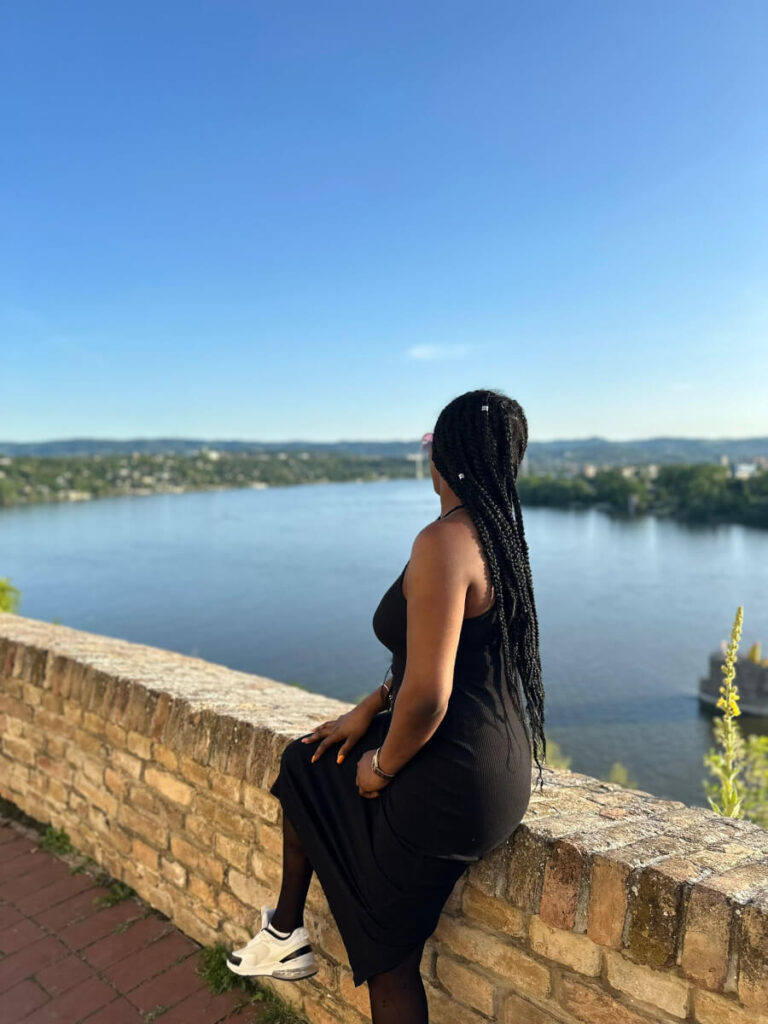
Conclusion
In this article, you learned about Belmira’s journey in Serbia. After 13 years in Serbia, she still lives there with joy and satisfaction due to her life decisions. Those interested in contacting her can find her on Instagram: @belrara.
Well, this was a different type of article in this blog, but I found it necessary to create it due to the number of questions I’ve been getting recently about how life is for a person of color in Serbia.
I hope you got answers to your questions before preparing for a visit or even starting a new life like Belmira did.
See you all in the following article!!

